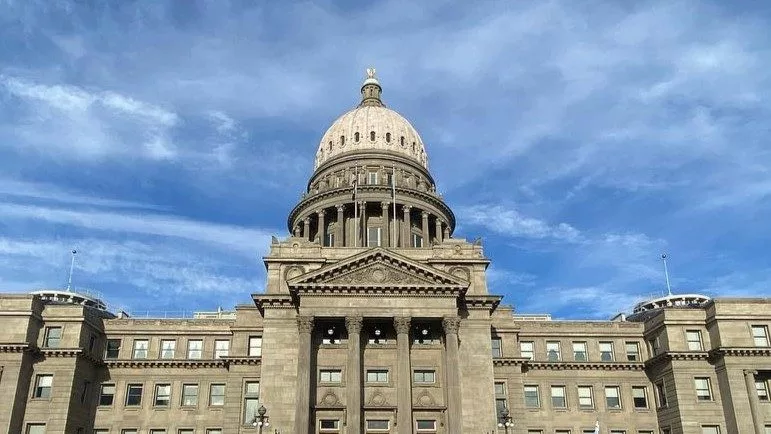WASHINGTON, D.C. – Under an emerging Republican plan to require some Medicaid recipients to work, between 4.6 million and 5.2 million adults ages 19 to 55 could lose their health care coverage, according to a new analysis.
The study, conducted by Urban Institute researchers with support from the Robert Wood Johnson Foundation, calculated that up to 39% of the 13.3 million adults in that age group who became eligible for Medicaid when their states expanded the program under the Affordable Care Act would lose coverage if Congress required states to impose work rules.
The report suggests that most of those people would lose coverage not because they aren’t complying with the rules, but because they would struggle to report their compliance to the state.
“Most adults who would lose eligibility for federal Medicaid funding are working, engaged in work-related activities, or could qualify for exemptions not readily identifiable through state databases but could still face disenrollment because of the reporting requirements,” it states. The study identified several barriers to reporting, including lack of broadband access and lack of transportation.
Forty states plus the District of Columbia have expanded Medicaid under the ACA. In 2018, 61% of Idahoans voted in favor of a ballot initiative to expand Medicaid in Idaho. Overall, nearly 72 million people, about a fifth of Americans, are enrolled in the program for low-income people, which is funded jointly by the federal government and the states.
Traditional Medicaid insurance was mainly available to children and their caregivers, people with disabilities and pregnant women. But the ACA, commonly known as Obamacare, allowed states to extend coverage to adults making up to 138% of the federal poverty level — about $21,000 a year for a single person.
Nationwide, more than 21 million people with low incomes have health insurance because of expanded Medicaid eligibility.
U.S. House Republicans push budget plan requiring Medicaid cuts to cover GOP-supported tax cuts
U.S. House Republicans in February pushed through a budget plan, now under consideration in the Senate, that would require about $880 billion in cuts to Medicaid over the next decade to help cover the cost of $4.5 trillion in tax cuts. The budget doesn’t contain specifics on how that target would be met. But work requirements are a likely money-saving option: A 2023 analysis from the nonpartisan Congressional Budget Office found that imposing work rules on Medicaid recipients ages 19 to 55 who are not parents or caregivers would cut federal spending by an estimated $109 billion over the next 10 years.
The Congressional Budget Office based that projection on a plan the GOP-controlled U.S. House approved in 2023. That bill, the likely blueprint for the work requirements Republicans are considering now, would have required adults ages 19-55 to work, participate in a job training program or perform community service for at least 80 hours per month for three or more months in a calendar year. Parents and caretakers of dependent children, and those unable to work because of a health condition, would have been exempt.
Many Republican-led states are eager to impose work requirements on able-bodied Medicaid recipients. Thirteen states received permission to impose work rules on at least some Medicaid enrollees during the first Trump administration. Nine additional states, including Idaho, requested permission to enact Medicaid work requirements during Trump’s earlier term but had not won approval by the time it ended.
When the Biden administration came into office, it rescinded all the approvals.
Supporters say requiring Medicaid recipients to work, study or train for a career gives them a boost toward self-sufficiency and financial stability. Critics, however, say such rules end up hurting far more people than they help.
The researchers from the Urban Institute mostly based their analysis on the experience of Arkansas, which in June 2018 became the first state to require some Medicaid recipients to work, volunteer, go to school or participate in job training to receive benefits. By the time a federal judge halted the policy in April 2019, 18,000 adults had lost coverage.
The researchers also looked at New Hampshire, which began implementing a work requirement but halted the program in July 2019 before suspending anyone’s coverage.
“What was found in a lot of qualitative research on the previous work requirement programs is that a lot of people were unaware of the policy, or they didn’t understand the policy,” said Michael Karpman, an Urban Institute researcher who co-authored the study.
“People who need coverage the most would do the most to try to maintain it. On the other hand, those people could also face the most difficulty with the administrative barriers,” Karpman said.
How did work requirements for Medicaid work out for Arkansas?
In a 2020 study examining how Arkansas’ last experience with work requirements played out, researchers from the Harvard T.H. Chan School of Public Health “found no evidence that the policy succeeded in its stated goal of promoting work and instead found substantial evidence of harm to health care coverage and access.”
Arkansas Republican Gov. Sarah Huckabee Sanders announced in January that she would ask the federal government for permission to institute work requirements, regardless of what Congress decides. The state submitted the request last week.
Arkansas Republican state Rep. Aaron Pilkington, who serves on the health committee in his chamber, said lawmakers “learned our lesson from the last go-round.”
Pilkington said that under the new proposal, the state will only pause coverage instead of canceling it, giving recipients an opportunity to prove they are complying. And, he said, the online portal for reporting will be a lot more user-friendly.
“I think it’s a reasonable thing to ask for able-bodied people to look for work, or try to obtain work,” Pilkington said.
But Christin Harper, policy director for Arkansas Advocates for Children and Families, said even the new version would be a challenge for many enrollees. Many people on Medicaid are juggling multiple jobs, and having to report to the state every month would be a significant burden.
“Especially for a rural state like Arkansas, work requirements fail to take into account a lot of the realities that people may face,” Harper said. She added that “with the overall job market, job opportunities may or may not be available in some of these rural towns.”





